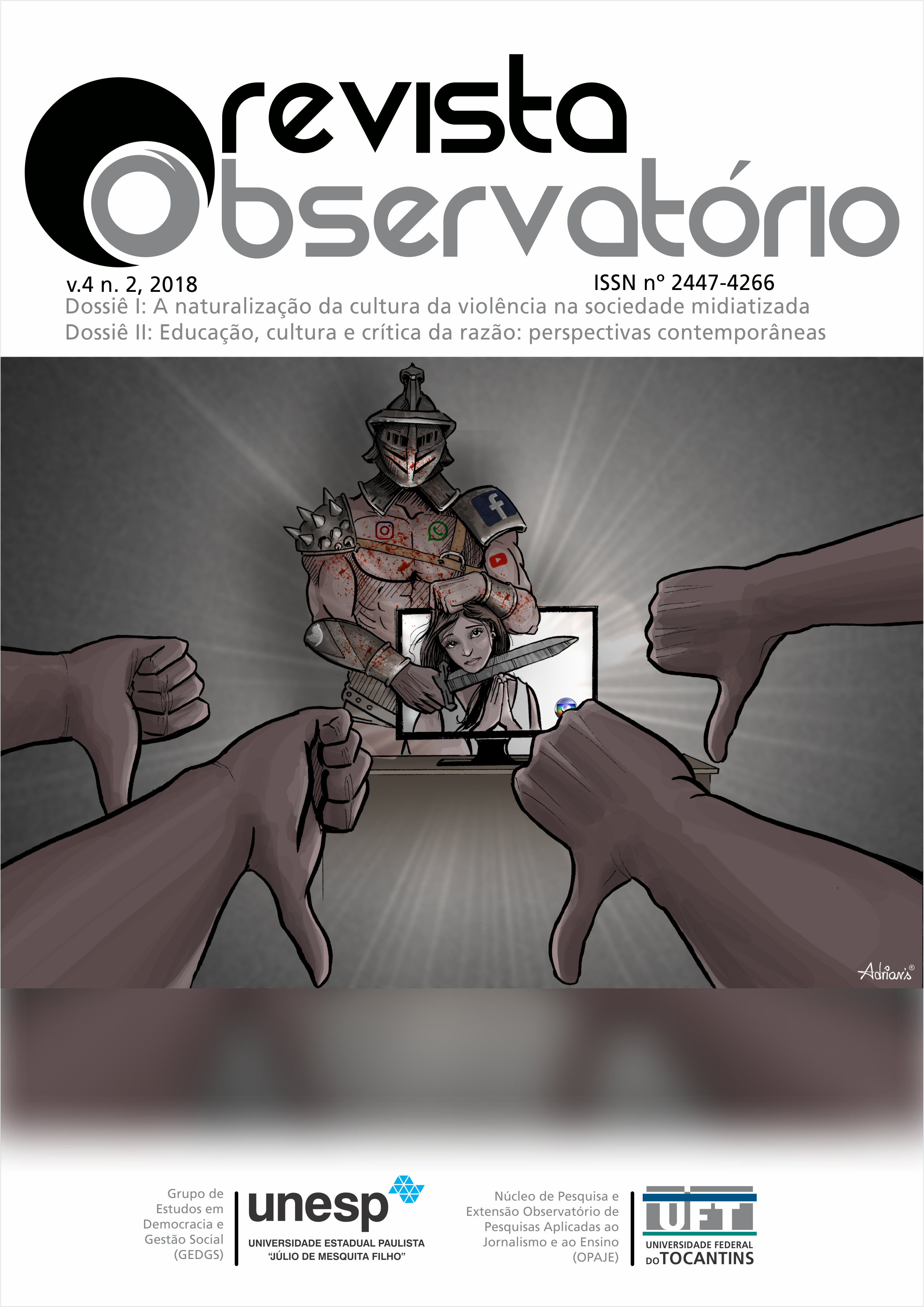MODERNITY, SCIENCE, PHILOSOPHY
DOI:
https://doi.org/10.20873/uft.2447-4266.2018v4n2p298Keywords:
Philosophy, Modernity, EducationAbstract
The text makes inroads into some texts of historians of Western thought in order to apprehend some decisive aspects of modernity, but also to show that at the present time there is the disenchantment of the overly optimistic promises of the seventeenth and eighteenth centuries. From the epistemological point of view, it demonstrates that the revolution of modernity has to do with changes of objects, arguing that understanding our age means asking about the nature of new objects born or constituted from the beginnings of the nineteenth century. This modern epistemological inversion requires another relation with knowledge, which places more demands on education than instruction alone. And he asks: if modern knowledge is so fragile, so ephemeral, so uncertain, why should it occupy us? Could not the school, the university, be at the service of other instances, perhaps more urgent, than knowledge? What do you want with education?
Downloads
References
BACHELARD, G. “L’actualité de l’histoire des sciences”, in L’engagement rationaliste. Paris: PUF, 1972a.
______________. La flamme d’une chandelle. Paris: PUF, 1961.
______________. La formation de l’esprit scientifique. Paris: Vrin, 1972b.
______________. Le nouvel esprit scientifique. Paris: PUF, 1978.
DELEUZE, G. Foucault. São Paulo: Brasiliense, 1988.
DESCARTES, R. Regras para a direção do espírito. Lisboa: Estampa, 1972.
DIDEROT, D. “Cabinet d’Histoire Naturelle”, in Choix d’aricles de l’Encyclopédie. Antologie preparée et préfacée par Marie Leca-Tsiomis. Paris: Ed. Du CTHS, 2001 (tradução do autor).
___________. Obras I e II. São Paulo: Perspectiva, 2001.
FOUCAULT, M. História da Sexualidade II: O uso dos prazeres. Rio de Janeiro: Graal, 1984.
_____________. Les mots et les choses. Paris: Gallimard, 1966.
_____________. Naissance de la clinique. Paris: PUF, 1972.
FOUCAULT, M. “Contracapa”, in JACOB, F. La logique du vivant. Paris: Gallimard, 1970.
HEIDEGGER, M. Introdução à metafísica. Rio de Janeiro: Tempo Brasileiro, 1969.
JACOB, F. La logique du vivant. Paris: Gallimard, 1970.
KOYRÉ, A. Estudos de história do pensamento científico. Tradução de Márcio Ramalho. Rio de Janeiro: Forense Universitária, 1982.
MATURANA, H. A ontologia da realidade. Belo Horizonte: UFMG, 1997.
PRIGOGINE, I. & STENGERS, I. A nova aliança. Brasília: UNB, 1984.
Downloads
Published
How to Cite
Issue
Section
License
[PT] Autores que publicam nesta revista concordam com os seguintes termos:
1. Autores mantém os direitos autorais e concedem à revista, sem pagamento, o direito de primeira publicação, com o trabalho simultaneamente licenciado sob a Creative Commons Attribution License (CC BY-NC 4.0), permitindo o compartilhamento do trabalho com reconhecimento da autoria do trabalho e publicação inicial nesta revista.
Leia todos os termos dos direitos autorais aqui.

